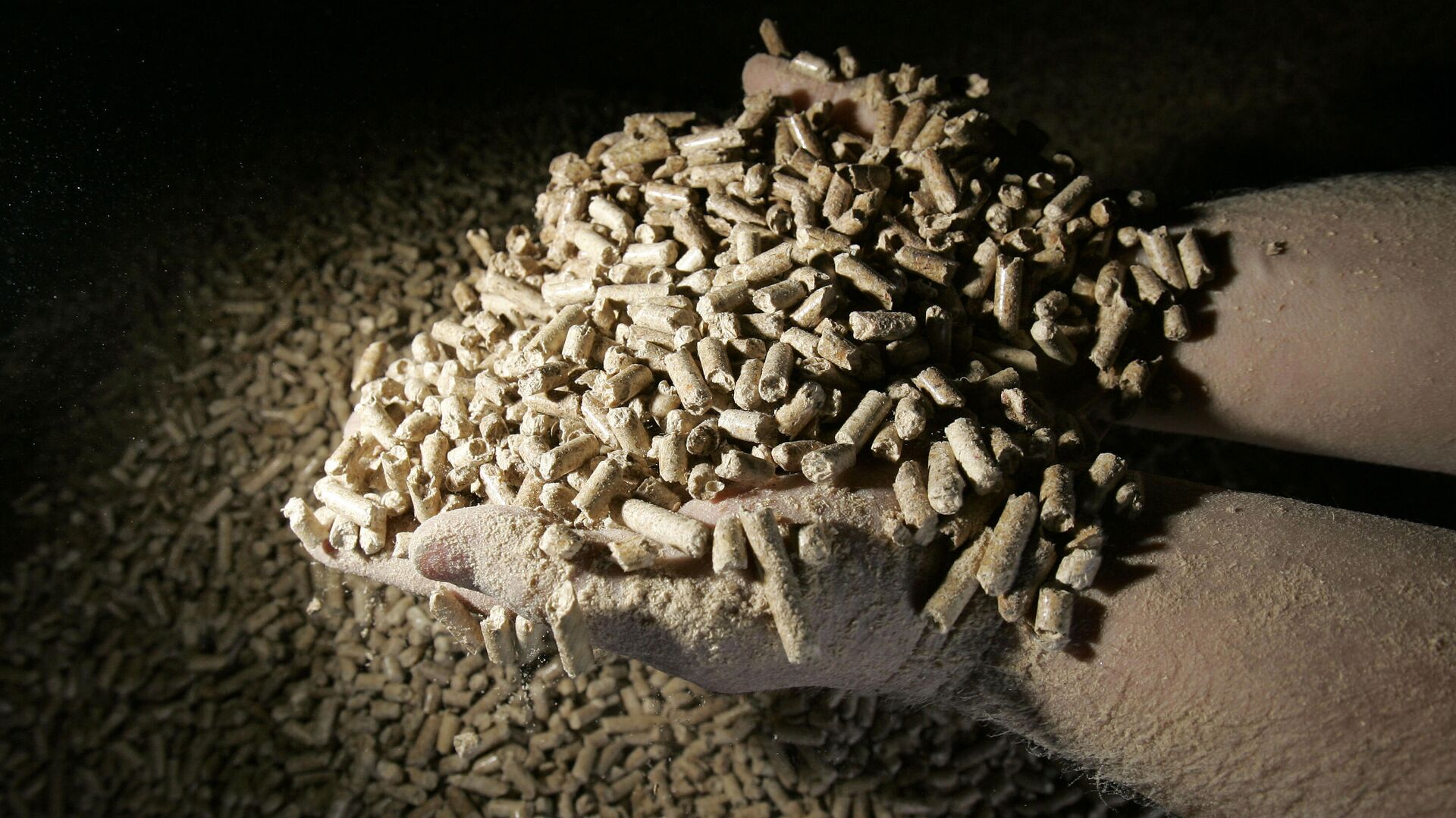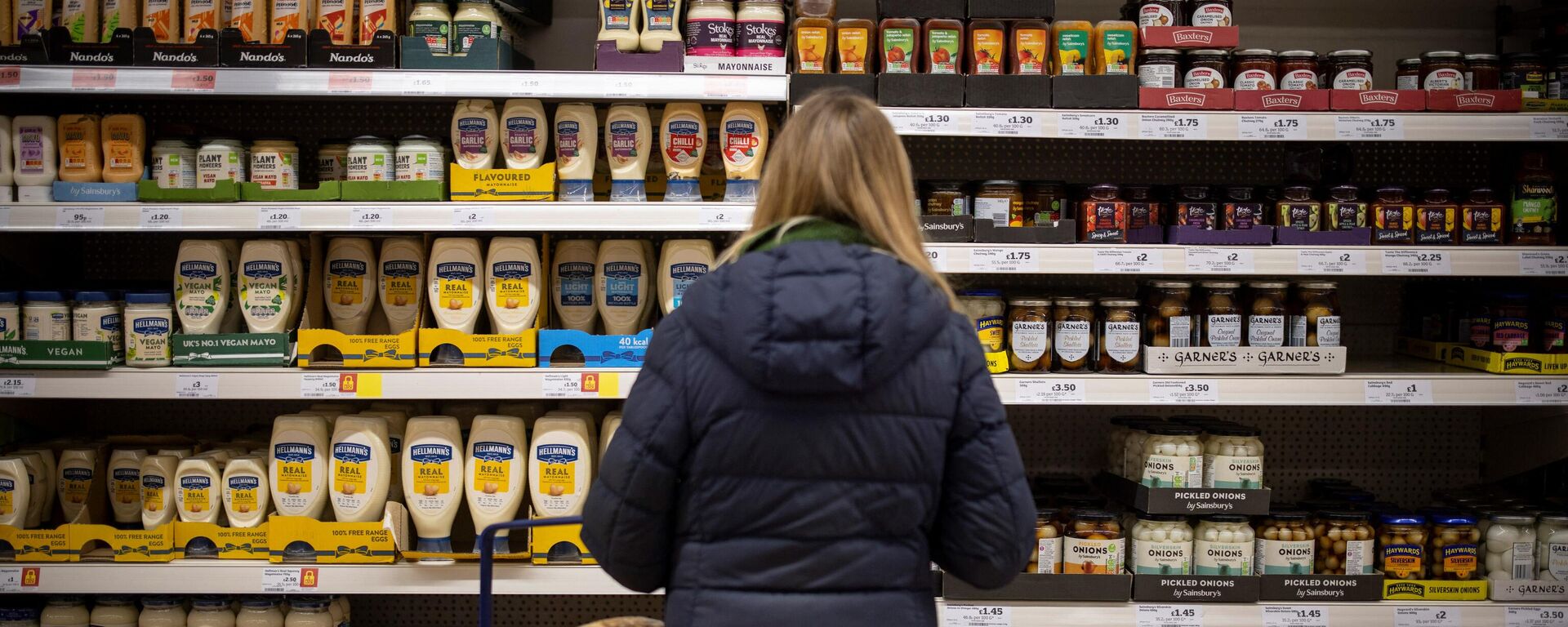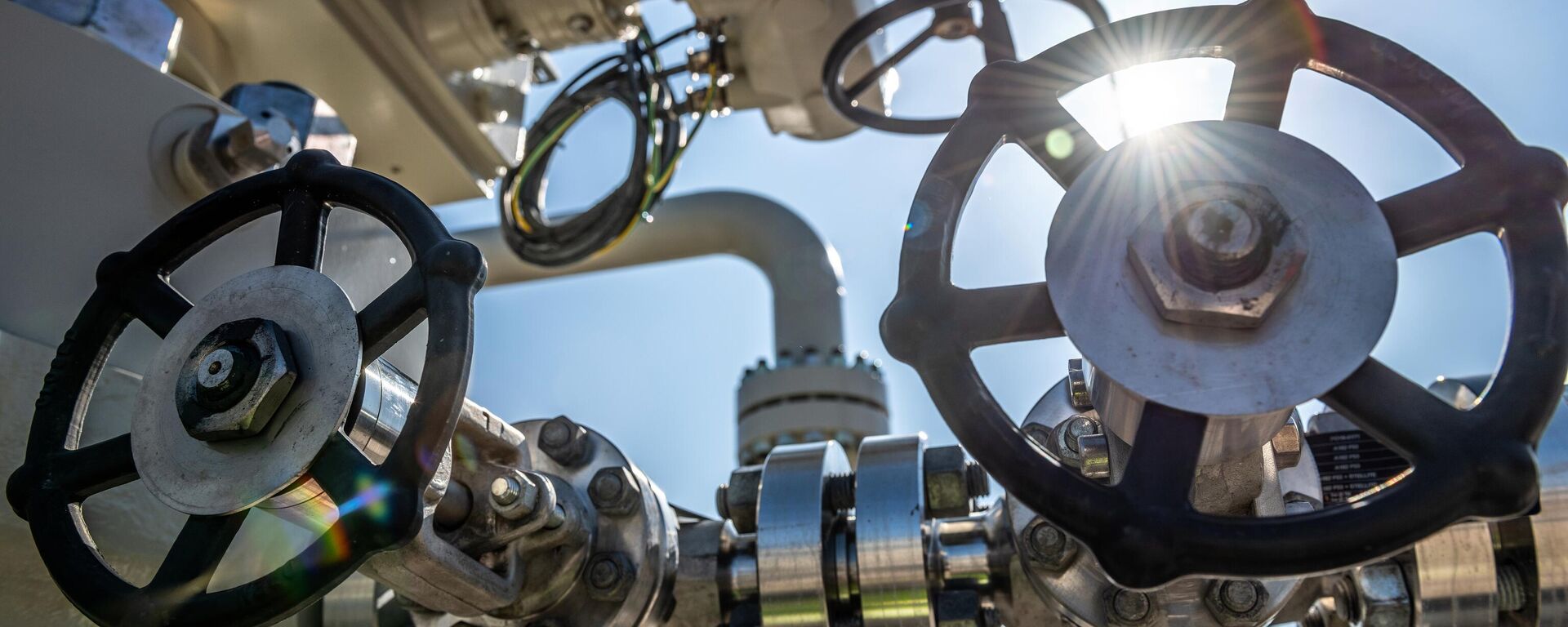https://sputnikglobe.com/20220315/uk-homes-businesses-face-soaring-costs-as-sanctions-end-supply-of-russian-biomass-wood-pellets-1093888662.html
UK Homes, Businesses Face Soaring Costs as Sanctions End Supply of Russian Biomass Wood Pellets
UK Homes, Businesses Face Soaring Costs as Sanctions End Supply of Russian Biomass Wood Pellets
Sputnik International
Natural gas and oil prices have skyrocketed amid the ongoing Russian operation to demilitarize Ukraine. After Washington and London announced bans on energy... 15.03.2022, Sputnik International
2022-03-15T09:16+0000
2022-03-15T09:16+0000
2023-05-28T15:18+0000
heating
russia
gas prices
ukraine
united kingdom (uk)
https://cdn1.img.sputnikglobe.com/img/07e6/03/0f/1093887582_0:195:2950:1854_1920x0_80_0_0_6c02f050edf614a447fc1e3d45a8fd29.jpg
Homes and businesses in Britain that resort to biomass boilers for heating have been forced to contend with soaring costs of wood pellets amid the sanctions slapped on Russia over its special military operation in Ukraine, reported The Telegraph.Prices have reportedly grown by between 25pc and 40pc to reach £385 a tonne.Russia is a major exporter of the pellets used instead of gas (or oil) to generate heat, but now UK importers are frantically searching for alternative supplies to make up for the losses.Mark Lebus, chair of the UK Pellet Council, was cited as saying that the sector in question was elaborating "immediate and alternative measures to restructure its global supply chain, working with overseas partners to help ensure a continuous supply of biomass wood pellets for UK customers".Lebus acknowledged that as wood pellets would no longer be sourced or imported from Russia, this would impact supply worldwide, not just to Britain.While a majority of homes in the UK have been heated by gas-fired boilers, surging gas costs have prompted homes and companies to switch to wood pellet heating systems in recent years. The move has been actively encouraged by government support, as part of the Renewable Heat Incentive (RHI).Launched in 2014 and aimed at the domestic market, the government-backed scheme encouraged homeowners to change from using fossil fuels for heating to renewable energies, such as wood pellet boilers. It is a quarterly payment scheme, set to run for up to 7 years from the date of commission. In line with it, payments are based on the number of kilowatt-hours of heat produced and used.The wood pellet crisis comes as dual-fuel (gas heat on the stovetop and electric heat in the oven) gas and electricity bills are forecast to rise by more than 50pc next month.This is set to follow the increase of the price cap on energy bills by regulator Ofgem by 54% or around £693. The energy price gap is the maximum amount that suppliers can charge customers for each unit of gas and electricity they use. After it is raised on 1 April, bills will increase from £1,277 to £1,971 for an average household, affecting 22 million customers.Mark Lebus believes that the UK government should try to bolster domestic production of wood pellets.Both Europe and the US have been hit with skyrocketing natural gas and oil prices as countries have been jumping on the bandwagon of Russian sanctions, unleashed over its operation, started on 24 February, seeking to "demilitarise and de-Nazify Ukraine".Oil prices touched a near 14-year high of $130.50 a barrel on 6 March, with analysts fearing that the price could surge to $240 by summer if Western countries persist with sanctioning Russian oil exports.US President Joe Biden had announced a ban on Russian energy imports on 8 March as part of America's new "severe" sanctions. The UK followed suit, announcing a phasing out of imports from Russia, in conjunction with the US, the EU and other partners, “to end our dependence on Russian hydrocarbons.”Sweeping sanctions came after Russia formally recognised the Donetsk and Lugansk People’s Republics (DPR and LPR) ahead of its special military operation, which began in response to an official request for assistance from the Donbass authorities.The Russian government has repeatedly stated that the goal of the current operation was to neutralise Ukraine's military capacity while not harming the civilian population of the country.
https://sputnikglobe.com/20220314/uks-poorest-families-most-exposed-to-biggest-cost-of-living-crisis-faced-in-generations--1093846146.html
https://sputnikglobe.com/20220306/gas-prices-why-eu-and-uk-sanctions-game-will-see-no-winners-1093621488.html
ukraine
united kingdom (uk)
Sputnik International
feedback@sputniknews.com
+74956456601
MIA „Rosiya Segodnya“
2022
News
en_EN
Sputnik International
feedback@sputniknews.com
+74956456601
MIA „Rosiya Segodnya“
Sputnik International
feedback@sputniknews.com
+74956456601
MIA „Rosiya Segodnya“
heating, gas prices, ukraine, united kingdom (uk)
heating, gas prices, ukraine, united kingdom (uk)
UK Homes, Businesses Face Soaring Costs as Sanctions End Supply of Russian Biomass Wood Pellets
09:16 GMT 15.03.2022 (Updated: 15:18 GMT 28.05.2023) Natural gas and oil prices have skyrocketed amid the ongoing Russian operation to demilitarize Ukraine. After Washington and London announced bans on energy imports from Moscow, the price of a barrel of Brent crude oil hit 130 dollars, with fears that costs could surge to $240 by summer.
Homes and businesses in Britain that resort to biomass boilers for heating have been forced to contend with soaring costs of wood pellets amid the
sanctions slapped on Russia over its special military operation in Ukraine, reported The Telegraph.
Prices have reportedly grown by between 25pc and 40pc to reach £385 a tonne.
Russia is a major exporter of the pellets used instead of gas (or oil) to generate heat, but now UK importers are frantically searching for alternative supplies to make up for the losses.
Mark Lebus, chair of the UK Pellet Council, was cited as saying that the sector in question was elaborating "immediate and alternative measures to restructure its global supply chain, working with overseas partners to help ensure a continuous supply of biomass wood pellets for UK customers".
Lebus acknowledged that as wood pellets would no longer be sourced or imported from Russia, this would impact supply worldwide, not just to Britain.
"With UK and international sanctions in place, we estimate that total European production may be reduced by some 12pc to 15pc, so there may be some short-term price rises due to the ongoing situation and heightened competitiveness between countries,” said Mark Lebus.
While a majority of homes in the UK have been heated by gas-fired boilers, surging gas costs have prompted homes and companies to switch to wood pellet heating systems in recent years. The move has been actively encouraged by government support, as part of the Renewable Heat Incentive (RHI).
Launched in 2014 and aimed at the domestic market, the government-backed
scheme encouraged homeowners to change from using fossil fuels for heating to renewable energies, such as wood pellet boilers. It is a quarterly payment scheme, set to run for up to 7 years from the date of commission. In line with it, payments are based on the number of kilowatt-hours of heat produced and used.
The wood pellet crisis comes as dual-fuel (gas heat on the stovetop and electric heat in the oven) gas and electricity bills are forecast to rise by more than 50pc next month.
This is set to follow the increase of the price cap on energy bills by regulator Ofgem by 54% or around £693.
The energy price gap is the maximum amount that suppliers can charge customers for each unit of gas and electricity they use. After it is raised on 1 April, bills will increase from £1,277 to £1,971 for an average household, affecting 22 million customers.
Mark Lebus believes that the UK government should try to bolster domestic production of wood pellets.
“The UK cannot provide the required volumes needed, and therefore we import on a considerable scale and become drawn into a growing energy crisis,” he said.
Both Europe and the US have been hit with skyrocketing natural gas and oil prices as countries have been jumping on the bandwagon of Russian
sanctions, unleashed over its operation, started on 24 February, seeking to "demilitarise and
de-Nazify Ukraine".
Oil prices touched a near 14-year high of $130.50 a barrel on 6 March, with analysts fearing that the price could surge to $240 by summer if Western countries persist with sanctioning Russian oil exports.
US President Joe Biden had announced a ban on Russian energy imports on 8 March as part of America's new "severe" sanctions. The UK followed suit, announcing a phasing out of imports from Russia, in conjunction with the US, the EU and other partners, “to end our dependence on Russian hydrocarbons.”
Sweeping sanctions came after Russia formally recognised the Donetsk and Lugansk People’s Republics (DPR and LPR) ahead of its special military operation, which began in response to an official request for assistance from the Donbass authorities.
The Russian government has repeatedly stated that the goal of the current operation was to neutralise Ukraine's
military capacity while not harming the civilian population of the country.






